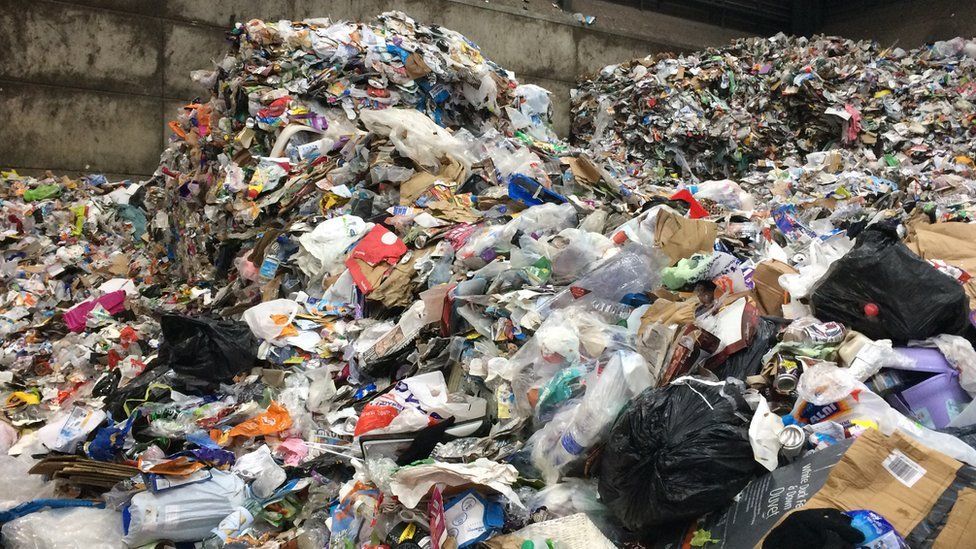China ban on foreign waste imports 'is opportunity'
- Published

China's plans to ban imports of foreign waste present an "opportunity" for the UK, an environment minister has said.
Therese Coffey said she understood the plans were "a headache" but challenged the UK to improve the quality of its waste and reprocess more at home.
She was speaking to MPs on the Environmental Audit Committee.
China announced plans to ban imports of 24 grades of rubbish in July, reducing the tonnes of the world's waste it imports to feed its recycling industry.
The Bureau of International Recycling China estimates that China last year imported 7.3 million tonnes of plastic scrap from Europe, Japan and USA, and 27 million tonnes of waste paper.
The ban is expected to come into effect by January next year.
Ms Coffey told the committee: "I can understand why it's a headache but actually the overall direction China is taking is to say we want to have higher quality of waste we are going to process.
"So it's a good challenge to us, to our industry, to us as a country, to improve the quality of the waste we have.
"It gives us an opportunity to reprocess more here, rather than exporting to the other side of the world just because it's a bit cheaper to do so."
However Caroline Lucas, co-leader of the Green Party and MP for Brighton Pavilion, questioned the government's sense of urgency.
She said: "This is happening in eight weeks. It just sounds incredibly lackadaisical. It doesn't sound like the issue is being treated with the urgency that it presumably deserves."
Asked if the UK would have the infrastructure to cope with the change Ms Coffey said: "The industry are saying we need more capacity.
"I've already encouraged them to provide the capacity that they believe we need."
But chair of the Environmental Audit Committee Mary Creagh said: "You've encouraged the industry to create more processing facilities here but these are big capital intensive plans that stick around for 20 or 40 years.
"Your warm words of encouragement are not going to be enough to encourage businesses, many of them multi-nationals, to invest in reprocessing here."
The committee also asked whether Ms Coffey had seen a report by the Department for Exiting the European Union on the impact of Brexit on the waste sector, among more than 50 impact reports undertaken by the department.
Ms Coffey responded she would need to confirm whether the report was based on analysis by Department for Exiting the European Union or her own department.
"We have discussed various elements... an amount of analysis has been done. I cannot tell you right here and now what analysis is in that report and I've asked for clarity myself."
- Published19 October 2017
- Published2 October 2017
- Published11 October 2017